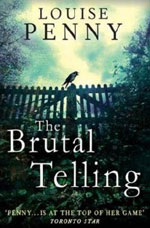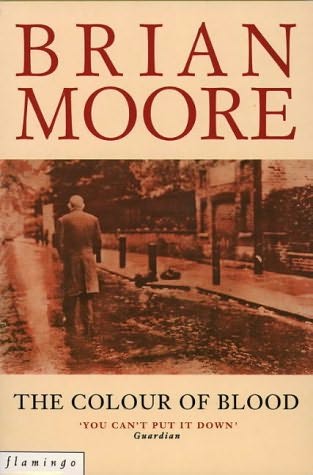Friday's Forgotten Books is usually hosted at
Pattinase's Friday's Forgotten Books but this week Patti is still on holidays and so I am your host.
I've tried to hunt down as many of the usual contributors as I can, so I hope I haven't missed anybody.
If I have please leave a comment and I will add you in.
Last week's host was
Davy Crockett's Almanack of Mystery, Adventure and The Wild West
The schedule for the next two weeks
February 4: Todd Mason
February 11: George Kelley
Me Tarzan You Nobody
- article courtesy of Ed Gorman who blogs
here
Somebody on line mentioned Lin Carter yesterday so I of course got nostalgic for the mid-Sixties which was right before I took my sacred vows with drink and drug. I looked up Carter on the net. Now you know and I know that he was generally a pretty miserable writer. He had to two good books in him by my estimation The Man Who Loved Mars and Time War. As with all his books you knew on page one exactly who he was "homaging." In Mars he was homaging (doesn't that sound dirty?) Leigh Brackett and Wars he was imitating Van Vogt. His worst work was his attempt to recreate the mystery pulps of the Thirties, Doc Savage, The Shadow and etc. But for some damned reason I bought and read all 900 (I'm joking) of his books and finished every one of them. To his credit, he was a damned fine editor. His Ballantine Fantasy series remains (for me) the benchmark of classic reprint lines.

One of the Carter pieces mentioned his affection for Edgar Rice Burroughs. I logged on and am glad I did. Burroughs has always fascinated me and I'm not sure why. Maybe because as a young man he was rather pretentious and vainglorious about himself while all the while being a failure at everything he tried. We've all known people like that (I was certainly one of them myself--Brian Moore's great The Luck of Ginjer Coffee gets him down on paper for all time) and while we might snicker at them we know there's something sad about them, too, that the bragging is empty and recognizing themselves in the morning mirror is painful.
Then he became a writer. Sort of just like that. An idiotic turn in a sappy Hwood movie. Then he became a writer. And by God not just any writer. Early on he created Tarzan, books still in print in virtually every country today, nearly one hundred years after their first appearance. I still read two or three Burroughs novels a year. He's not anywhere as good as Rafael Sabatini; and it's sacreligious to even utter the names Robert Louis Stevenson and H. Rider Haggard in the same piece. But I recently reread the first Tarzan novel and think I found the obvious reason for Burroughs' enduring success. He wrote books for innocents. He didn't know a damned thing about Africa, his prose occasonally makes you want to give the book in your hand a hot foot, and nobody will ever be outdone in his hatred of Germans (I ain't crazy about them either but still).

But in his innocence he allowed himself to create human creatures who have virtually no human responses. Swinging through the trees in a loincloth? Jane giving it all up to leave in a tree house? Apes and lions living in terror of this white dude? An "Africa" that bears no relation whatsoever to the real thing, an Africa in fact that's closer to the Burroughs Mars than any place else?
When you talk about the aventure novels scooped up by boys early in the last century you ARE talking about Stevenson and Haggard and Sabatini. But for all their adventurousness each of their books come with serious themes. Haggard's She remains nothing less than a bitter look at the mortality of our our species; a very dark book at its core. Sabatini's novels are implicit condemnations of imperialsim and expansionism. And the underlying psychology of Stevenson's bad guys invariably alter the lives of their young victims forever. Consider Treasure island, for instance, in juxtaposition to The Treasure of Sierra Madre. In some ways they're identical. And yet the Stevenson is a young adult book.
But it's fun sometimes to escape all that with Edgar Rice Burroughs. One of my favorite images in all literature is John Carter in that Arizona cave deep in the night when he's summoned to Mars. It's one of the most eerily beautiful scenes I've ever read.
This week's contributions to Friday's Forgotten Books
Kerrie Smith - THE NOMINATIVE CASE, Edward Mackin
Patti Abbott - THE MAIN, Trevanian. Reviewed by John McFetridge
John Norris - CANDIDATE FOR LILIES, Roger East
Richard Robinson - BERSERKERS: THE BEGINNING, Fred Saberhagen
Dave Evans - DARK MEMORY, Jonathan Latimer
Paul Bishop - THE FIRE MARSHALL: BEN PEDLEY NOVELS, Stewart Sterling
Randy Johnson - THE BORDER JUMPERS, Will C. Brown
Martin Edwards - DEATH AMONG THE SUNBATHERS, E.R. Punshon
Joe Barone - THE BIG SLEEP, Raymond Chandler
Scott Cupp - THE ELEMENT OF FIRE, Martha Wells
Jerry House - RUE MORGE NO. 1, edited by Rex Stout and Louis Greenfield
George Kelley - THE COMPLETE SHORT STORIES OF THEODORE STURGEON
Ron Scheer -ALONG THE RIO GRANDE, Jack Thorpe
Paul Brazill -FEARLESS JONES, Walter Mosley
James Reasoner - THE RED SCARF, Gil Brewer
Bill Crider - SCI-FI PRIVATE EYE, Charles G. Waugh & Martin H. Greenberg (Editors)
B.V. Lawson - THORNE IN THE FLESH, Rhona Petrie
Kevin Tipple - WITNESS TO MYSELF, Seymour Shubin
Todd Mason - THE PRICE OF SALT, Claire Morgan (Patricia Highsmith) & SPRING FIRE, Vin Packer (Marijane Meaker)
Richard L. Pangburn - A BROTHER'S N BLOOD, Michael C. White
Steve Lewis - THE PHANTOM CLUE, Gaston Leroux
Elizabeth Foxwell - MURDER AND ITS MOTIVES - F. Tennyson Jesse




































